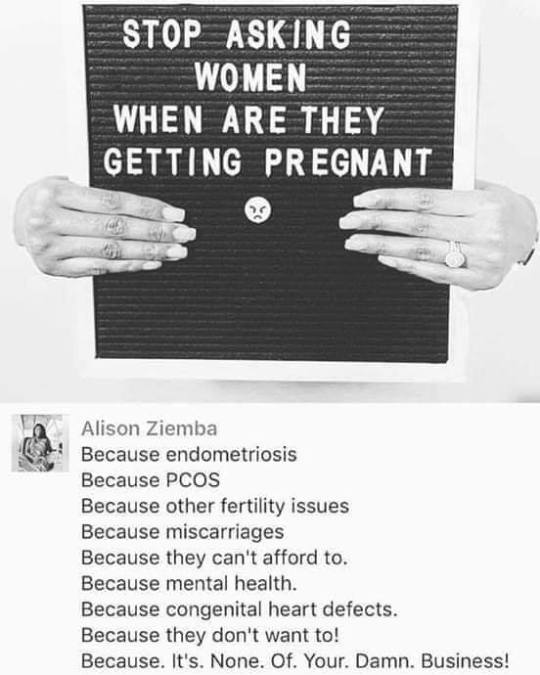Text
The Impact of Infertility and Stress
Introduction
Infertility is a disease where you cannot become pregnant. Pregnancy is something that many women desire in their life, many women even believe that having children is their life purpose. When that lifelong goal is taken away from them, it is purely heartbreaking. It causes unbelievable amounts of stress in many aspects in women's lives when their body isn't doing what they want it to do.
The Impacts
Within responses from participants to the Infertility-Related Stress Scale done by Casu & Gremigni (2016) in his study, it proved that people who are infertile experience much more stress in their lives than those who are fertile. Anxiety and depression are both significantly increased with people who are infertile. Parenthood is extremely important for many people, the stress from infertility comes from not being able to achieve their life goals, specifically, not being able to have children (Galhardo et al., 2020). Many will try to avoid triggering these feelings of anxiety, stress, and depression by not going to certain places and/or talking to specific people, like people who have children, this is called experiential avoidance.
Stress derived from infertility can impact life in intrapersonal (marriage, well-being, life satisfaction) and interpersonal (relationships w/others, work performance) ways. However, Casu & Gremigni (2016) found that infertility impacted intrapersonal life more because it strongly affects the mental and physical well-being of the infertile person, and negatively impacting the relationship with their partner too. Married couples typically have a desire to divorce each other when infertility is present because either one wants a child in life, or there is insufficient support. But, when they stay together and help each other through the struggle, they build a stronger relationship (Onat & Beji, 2012).
Ways to Reduce Stress
There are many things to do that can help reduce stress when it comes to infertility. The number one option is to seek therapy with a psychologist or counsellor. They will definitely aid in recognizing unhealthy thoughts and replacing them with positive ones. Couples therapy is also extremely beneficial if you are having conflicts with your partner during this time. A second option can be meeting with infertility support groups. This is incredibly helpful, especially since you are surrounded by people that are going through the same thing as you. You're able to feel comfortable and have open conversations about the same struggles. The third option is called mind-body interventions (MBIs). MBIs are used to become one with your body to reduce stress, anxiety and depression in order to become more fertile (Psaros et al., 2015). During MBIs, you are told to complete tasks that evoke the relaxation response, which is the opposite of the stress response, and allows you to slow down your heart rate, relax muscle tension, clear your mind, and more. The tasks can include yoga, breath focus, mindful awareness, etc. MBIs also help you develop healthy habits in your life, such as better nutrition, sleep, and exercise. Psaros et al. (2015) found that 12 months after the MBIs, women participating in the MBIs were able to conceive because they had social support and decreased depression and stress. Overall, each of the options above are great for those who are infertile as it provides support and advice in a time of desperate need for both of those.
Interview
Amira is a 38 year old woman who has been infertile since last year. When she found out she was infertile, she experienced very high levels of anxiety, depression and stress, and still has the same feelings today. She expresses how she had very scary and triggering thoughts and would question what her purpose in life is (06:54).
She experiences experiential avoidance by not walking through baby sections at stores, which would trigger her and cause a wave of sadness. She might look at certain items for babies and think, "I would've bought this for my child", and then realizing she can never have children for the rest of her life. Although, she does work as a head secretary at an elementary school and just being at her own job triggers her and brings unwanted emotions. As she might see people her own age with children, it can cause her to compare herself to them.
She explains how her diagnosis of infertility significantly impacted her life in intrapersonal ways than interpersonal, specifically, the relationship between her and her fiancé. She states how motherhood has always been her lifelong goal, but the fact that her fiancé doesn't necessarily feel the same way upsets her. She also states that how when she has bad days, her fiancé typically feels the weight of it, causing his mental health to sink a bit.
She manages the stress in many ways, either by seeing her counsellor, talking it out with friends, family and/or her fiancé. Amira says that when she is having an off day, she likes to engage in her own kind of meditation where she sits in her dark room in silence and just be one with her body. She says she likes to do this before engaging with the world in order to calm herself down on bad days. This is a form of MBI that can help lower stress.
Conclusion
Overall, infertility is a struggle for many people today, doesn't matter the gender. I hope that this blog provided a lot of information on the topic, such as the impacts of infertility on mental health, relationships, and ways to lower stress.
7 notes
·
View notes
Text







I think at its most basic, self-compassion is seeing what your needs are and then making sure they get filled. A reminder I need very often!
4K notes
·
View notes
Text

(Also stop asking this question of men and non-binary people, too.)
And if people ask you why you don't have kids, or when you're going to have a baby, or when you're going to have another baby, or when you're going to have a baby of the opposite sex from the one(s) you already have, or offers unsolicited (and probably not science-based) fertility advice, or nags you about your "biological clock," or makes insensitive BS comments about you "not knowing what real love is" or "not having meaning in your life," remember...
You don't owe them an explanation. And you don't owe them a baby. Your body, and your sex life, and your reproductive choices are not anyone else's business but your own.
395 notes
·
View notes
Text
Here’s a tip:
If you ask someone if they have kids and they say no, you can simply say “Oh, cool.”
For the love of God, stop saying, “Well one day when you do have kids…”
Not everyone can have kids. Not everyone wants to have kids. End rant.
1K notes
·
View notes
Text
Links for infertility support (Canada)
Here are some links that provide infertility support! If you know someone, like a friend, loved one or family member that is infertile, please share these with them :) These links are also very informational, please feel free to read if you are curious about infertility, its effects and the treatments
https://fertilitymatters.ca/directory/categories/g-support-groups
https://www.canada.ca/en/public-health/services/fertility/fertility.html
0 notes






